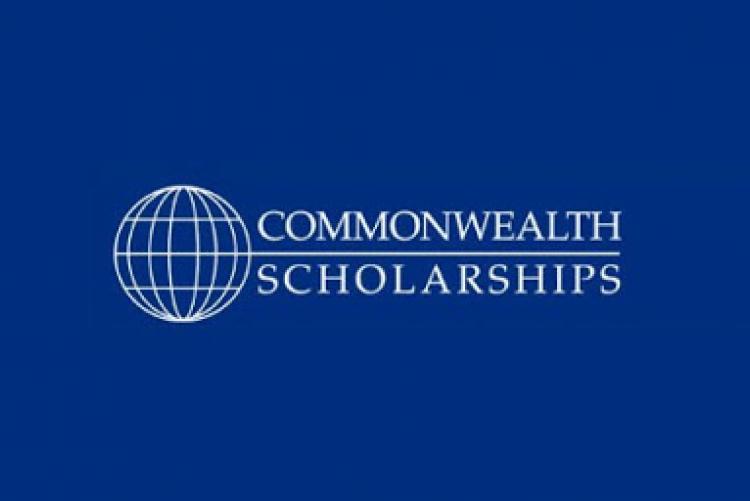Commonwealth Scholarship sets the stage for a journey of academic excellence and global collaboration. This guide delves into the intricacies of this prestigious program, exploring eligibility criteria, the application process, diverse scholarship types, financial support, and ultimately, the rewarding career paths it unlocks for successful recipients. We will navigate the complexities of this opportunity, providing a clear and comprehensive understanding for prospective applicants.
From understanding the specific requirements for different Commonwealth countries to mastering the application process and securing the necessary funding, this guide aims to empower aspiring scholars to confidently pursue their academic dreams. We will also examine the post-scholarship landscape, highlighting the career opportunities and professional networks available to alumni.
Eligibility Criteria for Commonwealth Scholarships

Securing a Commonwealth Scholarship is a significant achievement, opening doors to advanced study at prestigious universities across the Commonwealth. Eligibility, however, is carefully defined and varies depending on both the applicant’s background and the awarding country. Understanding these criteria is crucial for successful application.
Academic Requirements for Commonwealth Scholarships
Commonwealth Scholarships typically require a high level of academic achievement. Applicants usually need to hold a first degree (Bachelor’s degree) with a strong academic record, often demonstrated through a high GPA or equivalent. Specific grade requirements vary depending on the scholarship and the university, but generally, a strong upper-second-class honours degree or its international equivalent is expected. Furthermore, some scholarships may require a postgraduate qualification (Master’s degree) for specific doctoral programs. Applicants should carefully review the specific academic requirements Artikeld in the scholarship’s detailed eligibility criteria.
Residency Requirements for Commonwealth Scholarship Applicants
Residency requirements are a critical aspect of Commonwealth Scholarship eligibility. These requirements aim to ensure that the scholarships support individuals from Commonwealth countries who might otherwise lack the opportunity for advanced study. Generally, applicants must be a citizen of, and permanently resident in, a Commonwealth country eligible to apply for the specific scholarship scheme. This often involves demonstrating a long-term commitment to residing in their home country, with plans to return and contribute to its development after completing their studies. Temporary residency or dual citizenship may not always satisfy the residency requirement, so careful examination of the specific conditions is essential.
Comparative Analysis of Eligibility Criteria Across Different Commonwealth Countries
Eligibility criteria for Commonwealth Scholarships show some variation across different Commonwealth countries. For example, a scholarship offered by the UK might prioritize applicants from specific developing Commonwealth nations, while a scholarship offered by Canada may have a different focus. Some countries might place greater emphasis on specific fields of study, aligning their scholarship programs with national development priorities. Furthermore, age limits, although generally flexible, may differ based on the scholarship and the host country’s regulations. The specific requirements should always be checked on the official website of the relevant scholarship provider.
Summary of Key Eligibility Criteria
| Country | Academic Qualification | Residency | Age Limit |
|---|---|---|---|
| United Kingdom | First Degree (usually upper second-class honours or equivalent) | Citizen of and permanently resident in an eligible Commonwealth country | Varies depending on the scholarship |
| Canada | First Degree (requirements vary depending on the program) | Citizen of and permanently resident in an eligible Commonwealth country | Varies depending on the scholarship |
| Australia | First Degree (requirements vary depending on the program) | Citizen of and permanently resident in an eligible Commonwealth country | Varies depending on the scholarship |
| India | First Degree (requirements vary depending on the program) | Citizen of India | Varies depending on the scholarship |
Types of Commonwealth Scholarships

The Commonwealth Scholarships programme offers a diverse range of funding opportunities for students from Commonwealth countries to pursue postgraduate studies in participating member countries. These scholarships vary in their focus, eligibility criteria, and the level of funding provided. Understanding the different types is crucial for applicants to identify the most suitable option for their academic goals and financial circumstances.
Commonwealth Masters Scholarships
Commonwealth Masters Scholarships are designed to support students undertaking a Master’s degree programme. These scholarships typically cover tuition fees, a living allowance, travel costs, and other associated expenses. The specific funding amount and duration vary depending on the host country and the individual scholarship scheme. For example, a Master’s scholarship offered by the UK might cover a larger living allowance compared to one offered by a smaller Commonwealth nation, reflecting differences in cost of living. The duration generally aligns with the standard length of the Master’s programme, usually one or two years.
Commonwealth PhD Scholarships
Commonwealth PhD Scholarships provide funding for doctoral studies. These scholarships typically offer a more substantial level of funding compared to Masters scholarships, reflecting the longer duration and greater research commitment involved. Funding usually covers tuition fees, a living allowance (often for a longer period than Masters scholarships), research expenses, and travel costs. Similar to Masters scholarships, the exact funding and duration vary by host country and specific scholarship scheme. A PhD scholarship from Canada, for instance, might have a different structure and funding level than one from Australia, due to differing research environments and living costs.
Commonwealth Split-Site Scholarships
Some Commonwealth scholarships allow for a split-site study arrangement, where part of the study takes place in one Commonwealth country and the remainder in another. This offers unique research opportunities and exposure to different academic environments. Funding typically covers the costs associated with study in both locations, though the specific arrangements will be Artikeld in the scholarship award. An example might be a student conducting fieldwork in one country and completing their thesis writing in another.
Examples of Commonwealth Scholarships by Country
Several Commonwealth countries offer specific scholarship schemes under the broader Commonwealth umbrella. The UK offers a substantial number of scholarships through its various universities and agencies. Canada also provides numerous opportunities through institutions like the Canadian Commonwealth Scholarship and Fellowship Plan. Australia similarly offers a significant number of scholarships, often focused on specific research areas or development goals. These country-specific schemes often have unique eligibility criteria and funding structures.
| Scholarship Type | Funding Amount | Duration | Eligibility |
|---|---|---|---|
| Commonwealth Masters Scholarship | Varies by country and scheme; typically covers tuition, living allowance, and travel | 1-2 years | Citizens of Commonwealth countries; meets academic requirements of host institution |
| Commonwealth PhD Scholarship | Varies by country and scheme; typically covers tuition, a larger living allowance, research expenses, and travel | 3-4 years | Citizens of Commonwealth countries; meets academic requirements of host institution; strong research proposal |
| Commonwealth Split-Site Scholarship | Varies significantly depending on the locations and duration of study at each site; covers tuition, living allowance, and travel for both locations | Varies, depending on the research plan | Citizens of Commonwealth countries; meets academic requirements of both host institutions; well-defined split-site research plan |
Illustrative Examples of Successful Applicants: Commonwealth Scholarship

The Commonwealth Scholarship program has fostered the careers of countless individuals, transforming their lives and contributing significantly to their home countries. The following examples highlight the diverse backgrounds, achievements, and impactful journeys of some successful recipients. These stories demonstrate the transformative power of the scholarship and the lasting impact it has on both individuals and their communities.
Dr. Anya Sharma: Advancements in Sustainable Agriculture
Dr. Anya Sharma, a recipient of a Commonwealth Scholarship in 2015, hails from rural India. Her background in agricultural science, coupled with a deep understanding of the challenges faced by smallholder farmers, led her to pursue research in sustainable agricultural practices. During her doctoral studies at the University of Leeds, she developed innovative techniques for water-efficient farming, significantly improving crop yields in arid regions. Her research has been widely published and has directly influenced policy changes in several Indian states. The Commonwealth Scholarship enabled her to access cutting-edge research facilities and collaborate with leading experts, accelerating her research and propelling her career forward. She now leads a research team at a prominent agricultural university in India, mentoring the next generation of agricultural scientists.
Professor Ben Afolabi: Contributions to Public Health in Nigeria, Commonwealth scholarship
Professor Ben Afolabi, a Commonwealth Scholar from Nigeria, dedicated his research to tackling the challenges of infectious diseases in sub-Saharan Africa. His scholarship enabled him to pursue a Master’s degree in epidemiology at the London School of Hygiene & Tropical Medicine. His research focused on the development and implementation of effective disease surveillance systems, specifically targeting malaria and tuberculosis. His work has had a direct and positive impact on public health initiatives in several Nigerian states, leading to improved disease control and reduced mortality rates. The networking opportunities afforded by the Commonwealth Scholarship were invaluable, connecting him with international experts and fostering collaborations that continue to shape his work today. He now holds a prominent position at a leading Nigerian university and continues to mentor young researchers in the field.
Ms. Chloe Nguyen: Impact on Women’s Rights Advocacy in Vietnam
Ms. Chloe Nguyen, a Commonwealth Scholar from Vietnam, used her scholarship to pursue a Master’s degree in human rights law at the University of Oxford. Passionate about advancing women’s rights in her home country, her research focused on legal frameworks surrounding gender-based violence. Her work has been instrumental in advocating for legislative reforms in Vietnam, strengthening protections for women and girls. The Commonwealth Scholarship provided her with the necessary tools and platform to engage with international human rights organizations and contribute to policy discussions at a global level. Her experiences fostered her leadership skills and empowered her to continue advocating for social justice within her community and beyond. She now works for a leading human rights NGO in Vietnam, utilizing her legal expertise and international network to effect meaningful change.
Securing a Commonwealth Scholarship represents a significant investment in personal and professional growth. This guide has aimed to illuminate the path toward success, equipping prospective applicants with the knowledge and resources necessary to navigate the application process and maximize their chances of securing this life-changing opportunity. The potential for both academic achievement and impactful contributions to society through this program is immense, making it a truly worthwhile pursuit for dedicated and ambitious individuals.
General Inquiries
Can I apply for a Commonwealth Scholarship if I’m not a citizen of a Commonwealth country?
Eligibility varies by scholarship and country offering it. Some may be open to citizens of specific Commonwealth countries, while others may have broader eligibility criteria. Check the specific scholarship guidelines for details.
What if I don’t meet all the eligibility criteria?
Many scholarships have specific requirements. If you don’t meet all criteria, you may not be eligible. It’s advisable to thoroughly review the eligibility requirements before applying.
Are there any age limits for Commonwealth Scholarships?
Age limits vary depending on the specific scholarship and level of study. Some scholarships may have no upper age limit, while others may have restrictions. Refer to the individual scholarship guidelines for details.
How competitive is the Commonwealth Scholarship application process?
The Commonwealth Scholarship program is highly competitive, receiving numerous applications annually. A strong application showcasing academic excellence and clear career goals is essential.
Commonwealth Scholarships offer incredible opportunities for international students, providing funding for postgraduate studies in the UK and other Commonwealth nations. For those seeking similar financial aid within India, a valuable alternative is the lic hfl vidyadhan scholarship , which supports Indian students pursuing higher education. Ultimately, both programs highlight the importance of accessible funding for ambitious students furthering their academic pursuits globally and nationally.